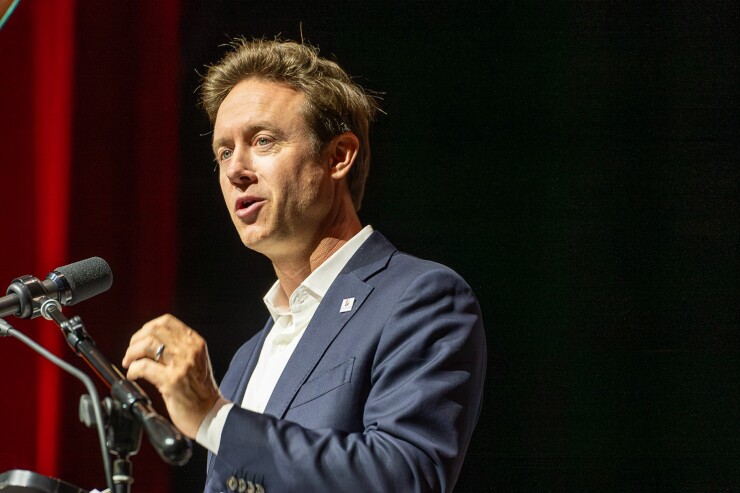Denver voters will consider a sales tax hike on the Nov. 5 ballot to raise about $100 million annually that could be tapped to back bonds for affordable housing.
The city council voted 9-4 Monday for the 0.5% tax hike measure

"Denver voters have never had the opportunity to vote directly on affordable housing, and now they get the chance to help make sure the nurses, first responders, teachers, seniors, and working families who built this city can afford to stay in this city," the mayor said in a statement.
Ahead of the vote, the council moved the expiration of the proposed tax increase to 40 years from 30 years.
"Forty years was helpful for us because of the flexibility it would provide if we need a few more years to determine what some financial options might be," Evan Dreyer, Johnston's deputy chief of staff, told the council.
Those financial options could include bonds that would be sold and refunded within the longer timeframe, according to Council Member Amanda Sawyer.
"This preserves not only the option of bonding against dollars in the first place, if council approves it, it preserves the potential option of refinancing those bonds down the road to get some cost savings for the city in terms of the interest in the future as well," she said.
Johnston has pointed to a 25,000-unit gap between the 19,000 units the city is on track to create with local and federal funding by 2033 and an analysis that indicated an affordable housing unit shortage of 44,000 during the same time period for households earning less than 100% of area median income.
The proposed tax increase for housing will join a 0.34% sales tax hike
The two tax hikes would give Denver "the highest sales tax of a non-resort city in the state," said Council Member Kevin Flynn.
"I think we have to stop talking about making Denver affordable by raising the cost of living here," he said, adding the affordable housing proposal needed more work before going to voters.
The city's 8.81% total sales tax rate, which includes Colorado's 2.9% portion, would rise to 9.65% if voters approve both the housing and health care tax increases.
Yet
Last week, Denver Public Schools' Board of Education voted to put a $975 million





